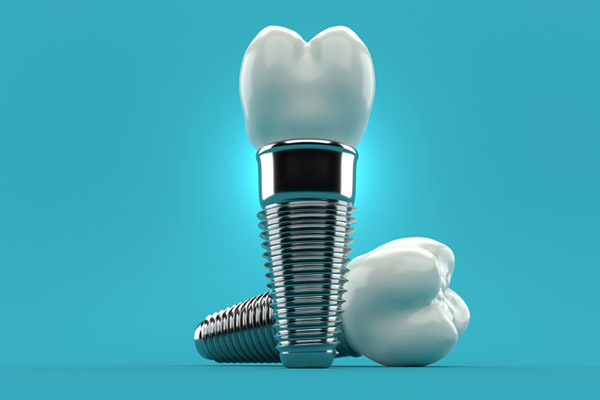Can Dental Veneers Be Removed?

If you have minor cosmetic issues, dental veneers may improve the look of your smile by covering them up. Veneers are thin shells of porcelain, ceramic, or composite materials that fit over the front of your teeth, making them appear whiter, straighter, healthier, or more evenly aligned. To securely mount the coverings in place, a dentist must first remove an outer layer of enamel and sometimes reshape the tooth for a natural-looking and even result.
Dental veneers are often recommended for minor or superficial damage because they are attached to the front of otherwise healthy teeth. Minor chips and cracks are fine, but severe decay or damage will require another treatment approach. In addition, the tooth root and gums must be healthy and stable before the treatment can take place.
If you wonder whether dental veneers can be removed, you should be clear about what you are asking. A dentist can take off veneers to replace them, but, in most cases, you cannot have veneers removed and go back to your original teeth. For these reasons, patients should carefully consider the commitment involved before choosing this treatment option.
Why are veneers removable?
Professional dental restoration treatments have a life expectancy of many years; the exact number varies depending on the treatment. Whatever the expected life span, it is understood that most restorations eventually have to be replaced. Dental veneers should last at least a decade. Nevertheless, their thin shells could be susceptible to chipping, cracking, or breaking. It is a relatively easy matter for the dentist to remove the old veneer and put a new one on. In that sense, the veneers are "removable."
There are several reasons why you might want to have veneers removed or replaced.
Stains
Veneers themselves are resistant to stains but the natural teeth around them are not. Veneers also cannot be whitened. To achieve a consistent color across all your teeth, you can either have your teeth whitened and replace the veneers to match or get new veneers that match the current color of your natural teeth.
Tooth decay
Veneers do not cover the entire tooth, only the front part. The exposed area in the back may still be vulnerable to decay. Repair of an underlying cavity requires the removal of the veneer, though it can be replaced later.
Damage
Veneers are vulnerable to the same types of things that can damage teeth, such as chewing on hard objects or a traumatic injury to the mouth. A broken or cracked veneer requires replacement.
Are dental veneers reversible?
In most cases, veneers are not reversible, meaning that you cannot change your mind about veneers and have them taken off without replacing them. For the veneers to adhere to your teeth, a portion of the enamel has to be removed. This makes the surface of your tooth rough so that the veneer is better able to attach to it. While only a small portion of enamel is removed, it is enough that if you were to have the veneer removed and not replace it, the rough areas would provide places for plaque to form and bacteria to grow. Additionally, you probably would not like the way it looked or felt.
There are exceptions in the form of no-prep and low-prep veneers that require less tooth enamel to be removed, or none at all. These types are considered reversible because whatever rough spots remain after the veneers are removed can be sanded down.
Other things to consider before choosing veneers
In addition to understanding the permanence of the treatment procedure, patients should also consider a few other implications before deciding on this treatment plan. Modifying your diet to avoid foods that can stain or damage veneers is essential to maintaining their appearance and stability. Alcohol should be consumed in moderation because it can wear down the adhesive at a much faster rate. People who clench or grind their teeth are more likely to damage veneers and should consider another alternative.
Even with routine care and a healthy lifestyle, a well-placed set of dental veneers will still require replacement eventually. Some patients need new coverings in about 10 years. Those with excellent oral health and habits can go as long as 20 years between treatments.
Conclusion
Before you decide to get dental veneers, you should weigh the decision carefully to make sure it is really what you want. While veneers can be removed by a dentist for purposes of replacing them, most are not reversible.
Request an appointment here: https://www.grandvalleydentistry.com or call Grand Valley Dentistry at (616) 259-6046 for an appointment in our Allendale Charter Twp office.
Check out what others are saying about our dental services on Yelp: Dental Veneers and Dental Laminates in Allendale Charter Twp, MI.
Recent Posts
Dental crowns and dental veneers are two different types of restoration treatments. A dental veneer fits over the front of the tooth, while a crown fits over the whole thing. If you are wondering whether a single tooth can have both a crown and a veneer, the answer is no. A tooth can support either…
A dental veneer can last for more than 20 years in many cases. However, getting the most out of your veneers requires caring for them properly. In this review, we discuss tips to ensure that your dental veneers last for well beyond a decade without needing any major restorations or replacements.In many ways, caring for…
If you are unhappy with the shape, color or overall appearance of your smile, consider investing in dental veneers and dental laminates. Veneers — often also called porcelain laminates — are extremely thin shells made of tooth-colored material. These shells slip over the surface of the tooth and drastically change its overall appearance. Veneers can…
Considering dental veneers? They are a great cosmetic dentistry treatment option used to restore and renew teeth that are in bad shape. However, many individuals are curious to know how long dental veneers last, which is a reasonable question, especially when considering different options. Below is an overview of how long dental veneers typically last, including…


